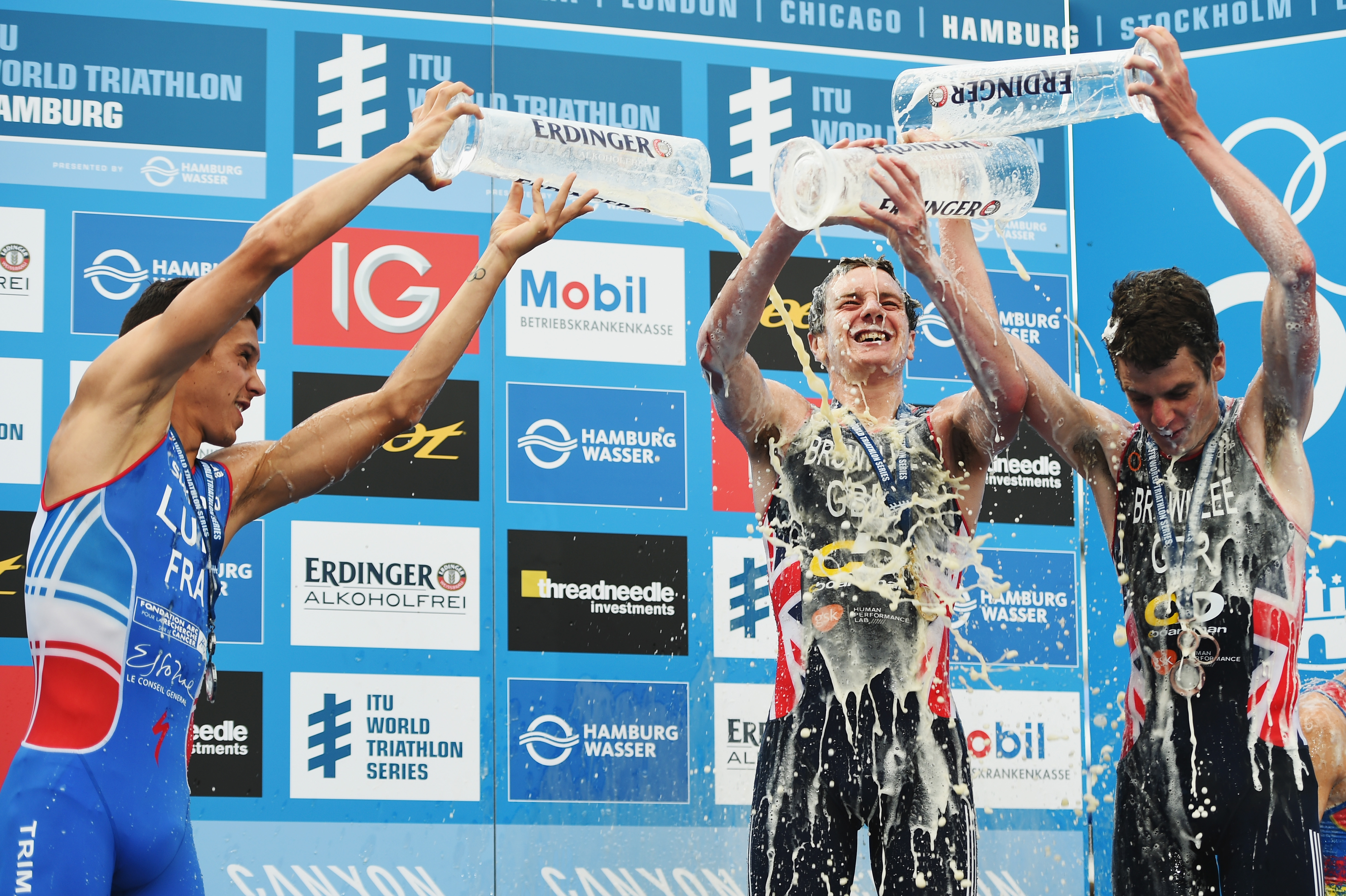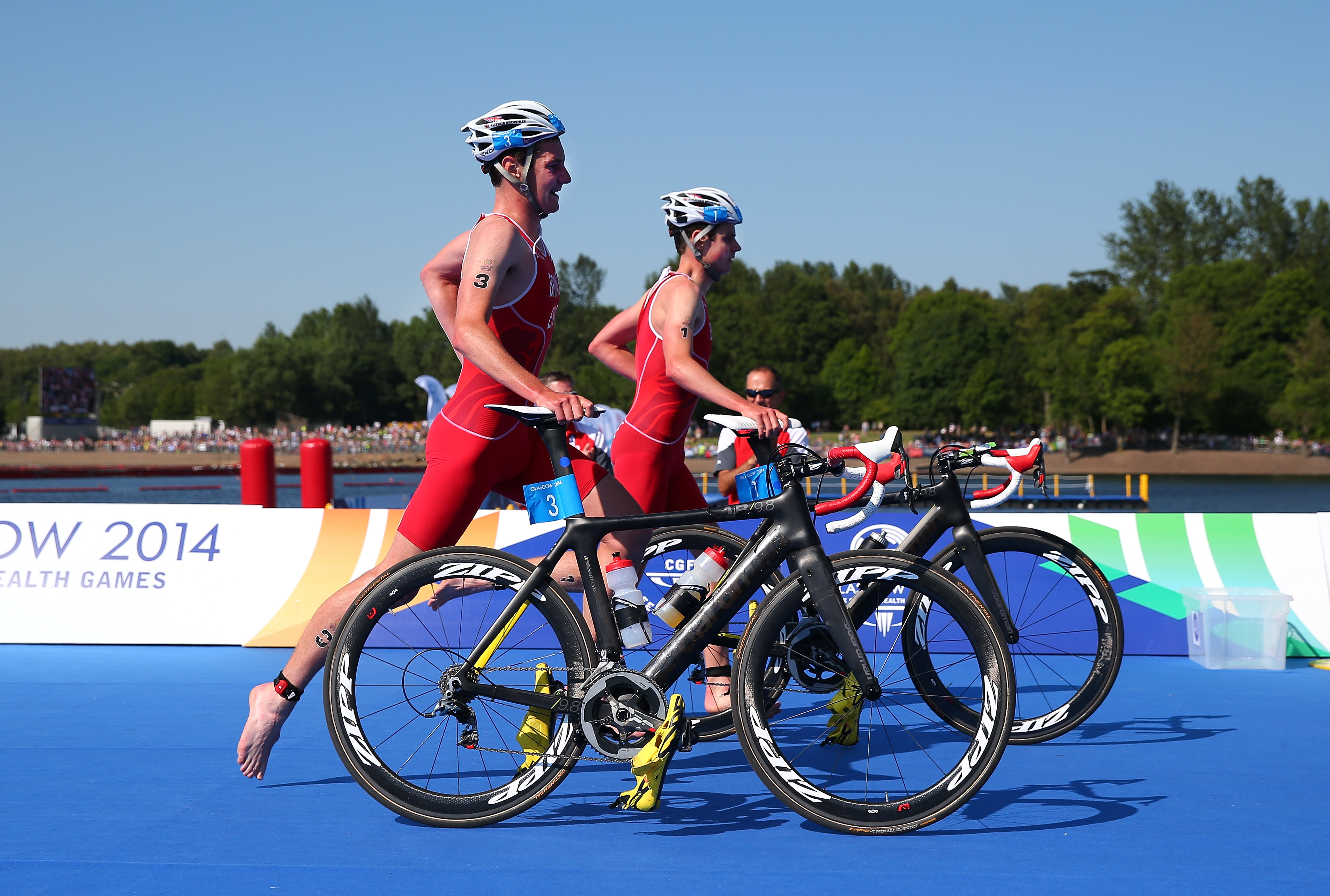The Brownlee brothers on their new race goals, thoughts on the sport and advice for each other
Alistair and Jonny Brownlee are striking out on different paths, still confident they have what it takes to rule swim, bike and run. Tim Heming gets the latest from Britain's tri superstars…

There was a time in triathlon when the Brownlee Brothers seemed invincible, and topping a World Series podium looked as easy as stripping a wetsuit. But sport and its stars evolve, and they’re now in their 30s with changing goals and aspirations.
Eric and Ernie, Ant and Dec, Ali and Jonny. As double acts go, for more than a decade mention ‘triathlon’ to the British public at large and the likely response is: ‘Brownlee Brothers.’
For the early part of their careers, the duo was inseparable on starting pontoons and not much further apart at the finish. Since Rio 2016, their paths have started to diverge, but until this year were always linked by Olympic ambition.
Yet after being thwarted from defending his title in Tokyo 2020, Alistair finally made a clean break to long course. For Jonny, it’s the Commonwealths in Birmingham this summer and then head over to Paris 2024. We caught up with them both to find out how they’re embracing their respective challenges…
220: Jonny – at 32, what’s the biggest challenge to staying competitive at short-course racing?

JB: I remember being a young athlete growing up and [former GB pro and London 2012 Olympian] Stu Hayes telling me that when I reached his age, recovery would be harder. I was 20 years old and was like: ‘What are you on about?’
I used to be able to do a hard track session on a Tuesday night and be up like a spring chicken for a run on Wednesday morning. Now it takes a little bit longer to get going. The hard aspect is keeping the intensity in training over the period I need it.
The calendar is also more difficult. We used to start racing in Madrid in May and finish the World Series by September. The current series lasts over a year. I think I’m going to pick and choose my races over the next three years.
Is it also about retaining enough speed on the run?
JB: I genuinely believe that even with [the introduction of] carbon shoes, Alistair’s run in London [2012] was the fastest there’s ever been in triathlon.
I can go to the track and easily run fast enough. It’s about the speed off the bike and being on the start-line healthy, confident and backing myself.
Hearing this Alistair, do you miss short-course racing?

AB: In lots of ways my favourite type of racing was the really competitive, short stuff. But do I miss it? No.
I feel like I had a great career and long distance has always been a big goal – a different type of racing, training in different places, with different people, in a different way.
How much training do you still do together and is it beneficial?
JB: All swimming, all easy biking, all easy running and then hard bike and run sessions will vary slightly. That said, Alistair still wants to go on the local chain gang!
AB: Ultimately, you need someone to help motivate you to get out of bed, or push you a little when you’re not really feeling it. Or even someone just to be there to do stuff with. I definitely still enjoy training with Jonny.
Jonny Brownlee: How recovery is the key to Paris 2024
“My nutrition has changed massively in the last couple of years and working with Nigel [Mitchell] has really helped. Through nutritional changes, I’m in better shape now than I was at this point last year, and it’s a reason why I want to continue to Paris.
“As someone who struggles from sugar highs and lows, I try and avoid sugary food in favour of something with high protein that stops me from reaching for the sweets and chocolates when I come back from a training session, and allows me that time window to cook a good meal.
“When I was younger, I could pretty much eat what I want, train how I wanted, and get better. I eat a lot healthier now and I hope these changes mean I can be on the start-line and genuinely competing for an Olympic medal. If I can’t, I don’t want to be there.”
What recent technological advancements in the sport have caught your eye?

AB: One of the things I’ve invested in is Incus, a small device at relatively low cost that can deliver lots of metrics. We’re all tri fans here, but it needs to be more immersive and interesting to bring others along.
JB: Developments that help me go faster fascinate me – carbon shoes, narrower handlebars, the pedals we tried heading into Tokyo for the mixed relay. I’ve always believed I’ve stood on the start-line as one of the best-prepared athletes and I want that to continue.
What did you make of Ironman’s coverage of the World Championship in St George?
AB: I’ve never watched so much Ironman before [Alistair pulled out sick on the eve of the event]. It’s brilliant Ironman are broadcasting more races, but I feel – even as a massive fan – that it’s slightly frustrating to watch. You just don’t know what’s going on. The tech exists easily and relatively cheaply to have people wearing onboard sensors where you can have GPS positioning as well as heart-rate and power.
JB: It was the first time the world champs had been on in a convenient time zone for a British audience. But it was like watching a cycle race and just focusing on the breakaway and not knowing how far the riders are behind. You shouldn’t have to download an app. It sets the commentators up to fail because they don’t have any information.
So, would you both fancy a go in the commentary booth?

AB: I’m not opposed to doing it at the right time and in the right way, but for the moment I want to focus on racing.
JB: Same. I wouldn’t mind being the expert insight person, but the proper commentary is really hard, I don’t envy those guys. I think my Yorkshire accent might be a bit too strong to commentate – and they might need subtitles.
The Stats: Ali vs Jonny
Alistair Brownlee
Age: 34
- Olympic medals: 2 – Gold, London 2012 & Rio 2016
- Commonwealth medals: 3 – Gold, Glasgow 2014 (individual & mixed relay); Silver, Gold Coast 2018 (mixed relay)
- World Triathlon World Champion: 2 (2009 & 2011)
- World Series wins: 22
- Ironman wins: 2
- Ironman 70.3 wins: 5
- Ironman 70.3 World Championship: 2 x runner-up
Jonny Brownlee
Age: 32
- Olympic medals: 3 – Bronze, London 2012; Silver, Rio 2016; Gold, Tokyo 2020 (mixed relay)
- Commonwealth medals: 3 – Gold, Glasgow 2014 (mixed relay); Silver, Glasgow 2014 (individual); Silver, Gold Coast 2018 (mixed relay)
- World Triathlon World Champion:1 (2012)
- World Series wins: 12
Are your views on race nutrition changing?

JB: I’d trained unbelievably well for Challenge Gran Canaria [23 April], but I didn’t drink half of what I should have on the bike and capitulated. I realised how important nutrition is to be able to show my ability because I got nowhere close [he finished 9th].
It was interesting watching the Ironman worlds and Kristian. He ran the whole marathon with a bottle, sipping away, getting it right, and fair play, because I know how wrong it can go. To continue running well at the end of an Ironman was impressive.
Does it change depending on the distance?
JB: For sprint you can get through off nothing, I believe. Olympic distance I now take a solution in my bottle, which is probably the equivalent of 1.5 gels – plus another gel. I worked hard on my nutrition with [nutritional consultant] Nigel Mitchell leading into Tokyo, as it’s something I got wrong over the last three years.
I found out I react weirdly to sugar. Too much at the wrong time is worse than taking nothing. I spent a lot of time testing that [for Gran Canaria] and we got it nailed in a lab, but I don’t think I’ve worked out the practicalities of picking up the bottles and making sure I’ve enough on my bike. I’ve come from the style of racing where every second counts, and you never think about stopping to get a bottle.
What are your goals for the rest of the year?

JB: The Commonwealth Games is the main focus. If you’d asked me 12 months ago, I’d never have said that. But after Tokyo, it changed, and I want to give it a good shot for medals in the individual and relay.
Then try and get some points to get GB three Olympic places this time. I’ll race Montreal [24-26 June], which is a big event for the mixed relay, and I’d love to go to Bergen [27-28 August] to race the Norwegians at home, and then do well in the Grand Final. And Super League, I enjoy the format and would like to do the outdoor series again.
AB: I’m going to assess after Sub7 [Ali had to pull out of the event]. The obvious goals are Kona – but I’m going to have to qualify somewhere! – and the PTO races.
Finally, what advice would you give each other?

AB: Don’t try and do everything across all different forms of triathlon. Just stick to what you want to do, and do it well. I think in lots of ways that’s a mistake I made.
JB: Not to get carried away and run too fast in training, because at the end of an Ironman marathon it’s not all about running fast. It’s also one of the first times in your career you’re not going into races as the favourite, so try to use that.
- Brownlee brothers: Top 5 moments
- Jonny Brownlee’s top 6 tips for beginners
- 5 triathlon tips from Ali Brownlee
Jonny and Alistair Brownlee were speaking as part of their work with American Pistachio Growers. Pistachios are a convenient protein snack that’s portable and doesn’t require any preparation. The Brownlee Brothers incorporate pistachios into their training diet to fuel their active lifestyles, and to help refuel and recover before and after a workout. For more information visit americanpistachios.co.uk.
Top image credit: Alex Livesey/Getty Images




